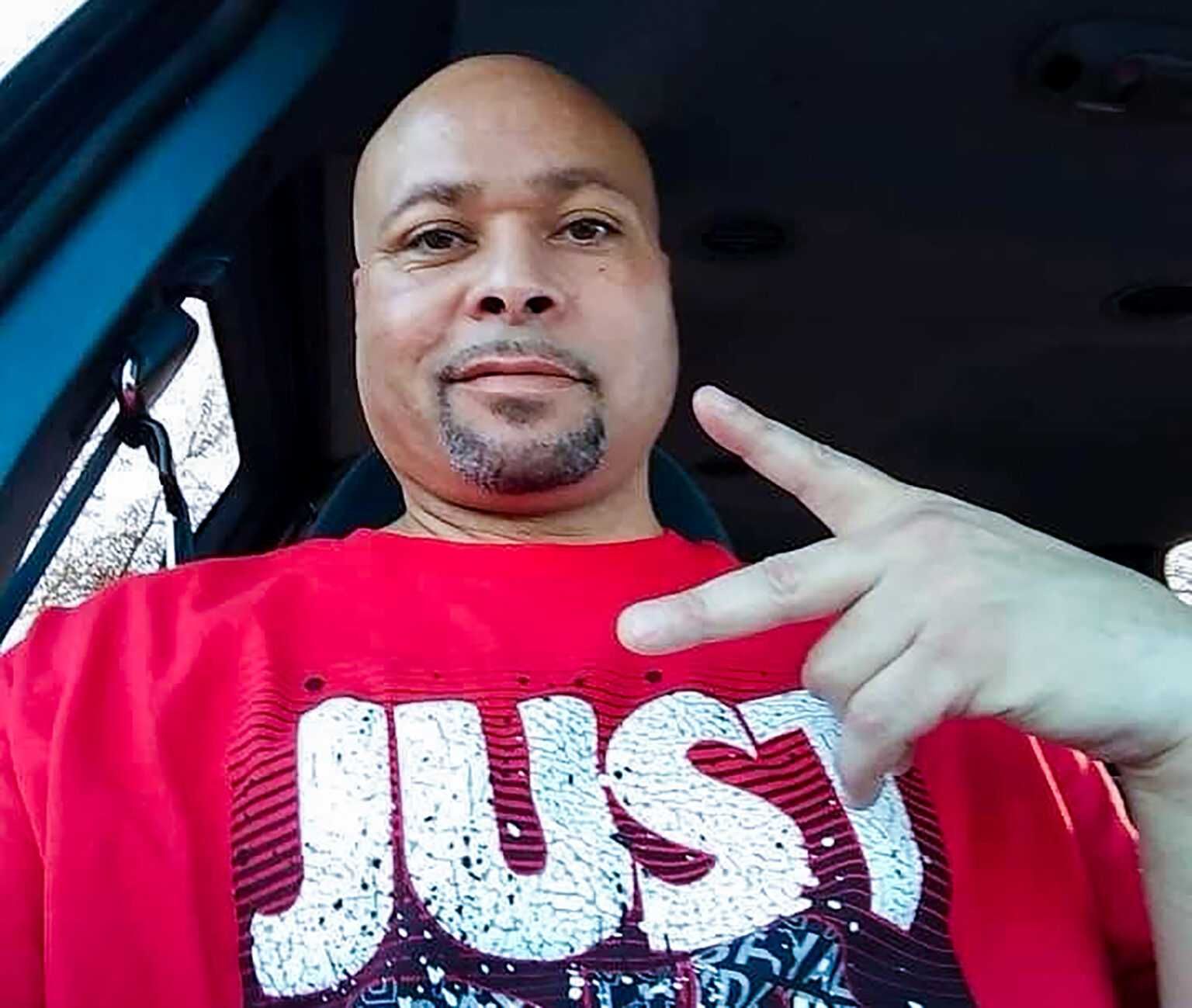There is a scene in the 2008 film “Doubt,” set in a 1964 Catholic grade school, where the priest told a story about a woman gossiping about a man she hardly knew — a situation Denton Loudermill Jr. understood when he was falsely accused in the 2024 shooting at the Kansas City Chiefs celebratory parade.
In the movie, the woman dreamed that night of a great hand appearing that pointed down at her. Seized with an overwhelming sense of guilt, she went to confession the next day with the parish priest, Father O’Rourke.
“Is gossiping a sin?” she asked. “Was that the hand of God almighty pointing a finger at me? Should I be asking your absolution, Father? Tell me, have I done something wrong?”
“Yes,” the priest said. “You’ve borne false witness against your neighbor. You played fast and loose with his reputation, and you should be heartily ashamed.”
Gossip haunted Loudermill in his last days with technologically supercharged rumor traveling at light speed, leading to death threats and slander from which he, and his family, could not escape.
People may not remember his name, but his family will never forget how people falsely accused him in a shooting that claimed one life and injured 22, including children.
He’d stood dazed in the chaos.
People screamed. Fight or flight hormones activated. Panicked parents scooped up little ones as best they could and sought safety, not knowing if they were running at or away from danger.
Unlike those who ran, Loudermill froze, said LaRonna Lassiter Saunders, part of the legal team representing Loudermill’s family.
“He saw a woman shot and bleeding out,” she said. “The shooting began near him. He was in shock. Everyone started running, but he asked himself, ‘Where should I run?’ He was waiting for his ride to pick him up.”
Public torment for this intensely private man began here.
Police cuffed him and sat him on a curb where people began photographing him, perhaps assuming police had collared one of the shooters. Police stopped Loudermill, Lassiter Saunders said, because he moved slowly.
Hard to blame the police in this context. This doesn’t seem malicious. Still, Loudermill sat helpless as photos of him traversed the internet like a lit fuse about to detonate and destroy his carefully guarded world. It did.
Someone at an undisclosed website posted the picture and labeled him a “terrorist,” and an illegal immigrant. Those images and that narrative spread like a virus. Two Missouri officials used the photo in posts urging the president to “close the border.”
U.S. Chief Magistrate Judge Willie J. Epps Jr. on Oct. 7 allowed Loudermill’s defamation case against Missouri Secretary of State Denny Hoskins and state Sen. Rick Brattin to proceed.
Emails sent to the offices of Hoskins and Brattin were not answered.
Given the appetite in wide swaths of society to allow masked law enforcement to tackle and shackle foreign-looking people, imagine the impact on Loudermill and his family.
Death threats rose like a flood.
“I’m just a light-skinned Black dude,” Lassiter Saunders recalled Loudermill saying. “Why are they lying on me? I was born and raised in Olathe. I’ve been here all my life.”
This digital mob predictably but painfully took its toll.
His counselor diagnosed him with post-traumatic stress disorder. In conversations with Lassiter Saunders, he wondered if he’d survive. His weight crashed, leaving him unrecognizable.
“This happened often, usually at the beginning of our conversations,” she said. “The first part of my representation, I was like a counselor.”
Loudermill, she said, would see references to the parade shooting on television. He rarely ventured into social media, but his children would see threats and accusations about him.
Once, at work, he told her he saw someone staring at him. He said they punched keys on their phone. It seemed as though they were pulling up his photo and when it appeared, it registered on their faces.
Once the digital mob poured the illegal alien and terrorist narrative into a mold, it quickly hardened into a truth-resistant bulwark of gossip and stupidity.
“This cost him his life,” Lassiter Saunders said. “The process has outlived him.”
His family found him dead on April 11.
There seems no remedy sufficient for what happened to him. To date, she said, the officials who wrongfully posted his photo have not apologized.
In “Doubt,” the gossiping woman did say she was sorry and asked for forgiveness.
“Not so fast,” Father O’Rourke said.
He ordered her to go home, take a pillow from her bed, climb to her roof, and cut it open.
The woman did as the priest asked and returned.
“What was the result?” he asked.
“Feathers,” she said. “Feathers everywhere, father.”
“Now, I want you to go back and gather up every last feather that flew out on the wind,” he said.
“It can’t be done,” she said. “I don’t know where they went. The wind took them all over.”
“And that,” O’Rourke said sharply, “is gossip.”
And for many, the image of this innocent man as some immigrant terrorist still floats on the digital four winds, impervious to truth.
Mark McCormick is the former executive director of the Kansas African American Museum, a member of the Kansas African American Affairs Commission and former deputy executive director at the ACLU of Kansas. Through its opinion section, Kansas Reflector works to amplify the voices of people who are affected by public policies or excluded from public debate. Find information, including how to submit your own commentary, here.
